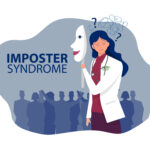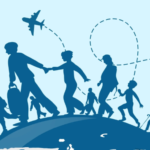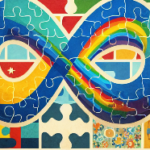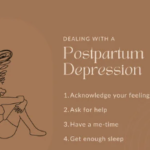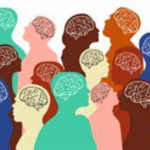In North America, the diagnosis of Autism Spectrum Disorder (ASD) among immigrant children remains a pressing issue, with significant disparities affecting access to early intervention and resources. While ASD affects individuals across all racial, ethnic, and socioeconomic groups, immigrant families often face unique barriers that exacerbate the challenge of getting timely, accurate diagnoses for their children.
As a result, many children with ASD remain undiagnosed or misdiagnosed, leading to delays in intervention that can have long-term effects on their development. If you are part of an immigrant community or working with such families, understanding these disparities and actively working to address them is more critical than ever.
This is where the work of Adeola Dorcas Folorunso, a nurse, public health expert, and advocate, can provide both insight and inspiration for action.
The Current State of ASD Diagnosis Disparities
Autism Spectrum Disorder is a developmental disorder that affects a child’s ability to communicate, interact, and behave in social settings. Early diagnosis and intervention are crucial, as research shows that the sooner children receive appropriate support, the better their long-term outcomes in areas like communication, social skills, and academic achievement.
However, studies indicate that immigrant children in North America are often diagnosed later than their native-born peers. According to a 2021 study published by JAMA Pediatrics, children from immigrant families are less likely to receive an ASD diagnosis by age 5 compared to their non-immigrant counterparts, with racial and ethnic minorities experiencing even more significant delays (Mandell et al., 2021).
Why does this disparity exist? There are several contributing factors, many of which are cultural, financial, and systemic.
For one, language barriers can prevent immigrant parents from fully understanding the signs of autism or accessing the necessary diagnostic services. A lack of culturally competent healthcare providers who understand the diverse cultural perceptions of disability also plays a significant role.
In many immigrant communities, there may be a lack of awareness about ASD, and even when parents suspect their child may have the disorder, they might not know where to turn for help.
Additionally, systemic issues such as limited access to healthcare, financial insecurity, and a lack of appropriate health insurance compound these challenges.
Adeola Dorcas Folorunso: A Lifelong Advocate for Health Equity
Amidst these disparities, Adeola Dorcas Folorunso’s work remains an urgent call to action. Originally from Nigeria, Adeola moved to Canada in 2011 to further her education and has since dedicated her career to improving healthcare access for underserved populations, particularly immigrant families.
With degrees in nursing, health administration, and public health, Adeola brings a wealth of expertise and experience to the issue of ASD diagnosis in immigrant communities.
Her passion for addressing health disparities is deeply personal. Having worked in both Nigeria and Canada, she understands the complexities of navigating different healthcare systems, particularly as an immigrant.
Her experience, combined with her commitment to culturally sensitive healthcare, led her to found Matermental, a non-governmental organization focused on tackling maternal, paternal, and child health issues that disproportionately affect vulnerable populations.
Adeola’s initiative highlights a crucial point: culturally competent care is not just a luxury—it is a necessity.
Adeola’s work isn’t confined to North America. In 2024, she organized a free dental outreach for children with Autism Spectrum Disorder (ASD) in Iwo Osun State, Nigeria.
The event provided over 150 children with deep dental cleaning, scaling, and polishing services crucial to children with sensory sensitivities who may struggle with routine dental visits.
This is just one example of how Adeola actively addresses the broader gaps in healthcare for children with ASD in underserved communities.
The Unique Barriers Immigrant Families Face
You may be wondering, “What are the real barriers immigrant families face when it comes to an ASD diagnosis?” The barriers are manifold and interconnected, affecting families in profound ways. Let’s explore some of these key obstacles.
Cultural Perceptions of Disability
In many immigrant communities, autism may not be understood in the same way as it is in Western societies. In some cultures, developmental disabilities are stigmatized, leading to reluctance to acknowledge or seek help for a child who may be showing signs of autism.
Parents may be hesitant to pursue a diagnosis due to fears of social exclusion or discrimination, or because they may not see developmental delays as a serious issue.
This is especially true for first-generation immigrants who are still adapting to life in a new country and may not be familiar with the diagnostic process or the importance of early intervention.
Language and Communication Barriers
Language can be a significant hurdle for immigrant parents trying to navigate the complex healthcare system. Without fluency in the dominant language of their new country, parents may struggle to explain their child’s symptoms to healthcare providers or may fail to understand the information provided to them.
This can delay diagnosis and treatment and lead to frustration on both sides. Healthcare professionals may miss subtle signs of ASD, or worse, misinterpret symptoms, further delaying the necessary intervention.
Economic Barriers
Economic hardship is another factor that complicates access to healthcare for immigrant families. Many immigrants work in low-wage jobs and may not have the financial resources to seek private healthcare or pay for the often-costly services associated with ASD diagnosis and treatment.
Even when they do qualify for insurance, there may be limited coverage for specialized services like speech therapy or behavioral interventions, leaving families to navigate a patchwork system of care that may not adequately meet their needs.
Lack of Trust in the Healthcare System
Many immigrants come from countries where healthcare systems are different, and their experiences may shape their relationships with healthcare providers. Distrust in the healthcare system is common among immigrant populations, particularly those who have faced discrimination or exclusion in their home countries.
This distrust can manifest in hesitancy to seek help for their children, especially when it comes to mental health or developmental concerns. This, in turn, increases the likelihood of delays in diagnosis.
Moving Toward Solutions: What Can Be Done?
So, how do we address these disparities in ASD diagnosis for immigrant children? As a community, whether you are a healthcare provider, an educator, a policymaker, or a concerned individual you have a role to play.
Below are some actionable steps that can help bridge the gap and ensure that all children, regardless of their background, receive the care they need.
1. Promote Cultural Competency in Healthcare
One of the most effective ways to reduce disparities in ASD diagnosis is through cultural competency training for healthcare providers. Doctors, nurses, and mental health professionals need to be equipped with the knowledge and skills to understand the cultural factors that may impact the diagnosis of ASD.
By adopting a more inclusive approach to healthcare, providers can avoid misdiagnosis and help immigrant families feel understood and supported.
2. Increase Community Outreach and Education
Raising awareness in immigrant communities about ASD is crucial. Community-based programs, workshops, and informational campaigns can help parents identify early signs of autism and understand the importance of early intervention.
Adeola’s work with Matermental provides a model for such initiatives, as her outreach programs in Canada and Nigeria have successfully reached underserved populations and provided them with much-needed information and resources.
By partnering with local community leaders, healthcare professionals can build trust and ensure that immigrant families feel comfortable seeking help.
3. Expand Access to Services
Access to early diagnosis and treatment is a basic right. Governments, healthcare organizations, and nonprofit groups must work together to expand access to diagnostic services, particularly in immigrant-heavy regions.
Offering free screenings and subsidized services can help overcome financial barriers and ensure that no child is left behind. Telehealth is also a promising solution, as it provides an accessible option for families who may live in remote areas or face mobility challenges.
4. Implement Policy Changes
Policymakers must recognize the importance of equitable healthcare policies that address the specific needs of immigrant communities. This includes increasing funding for programs that provide mental health screenings and developmental assessments for children in immigrant families.
Policies that ensure language support in healthcare settings and that prioritize culturally competent care are crucial in reducing the barriers immigrant families face.
Conclusion: A Call to Action
As you read this article, remember that the disparities in ASD diagnosis are not just statistics, they represent real children whose futures depend on early intervention and support.
You, as an individual or part of an organization, can make a difference. By advocating for culturally sensitive healthcare, supporting immigrant families, and working towards systemic change, we can ensure that all children with ASD receive the care they need to thrive.
As Adeola Dorcas Folorunso’s work shows, the road to equitable healthcare is long, but it is possible. Together, we can reduce the disparities in ASD diagnosis and give every child a chance to succeed. The time for action is now. Let’s start today.


